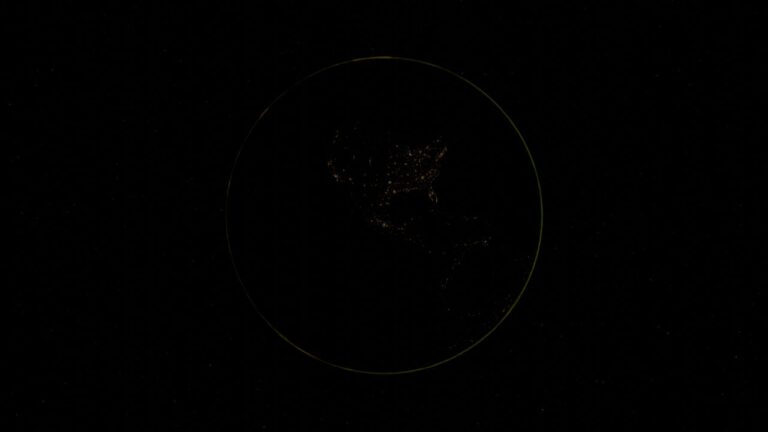In his work The Republic, Plato relates a discussion between his brother Glaucon and his teacher Socrates. The discussion was about the question of human nature. Glaucon argues that, were it not for the painful consequences of bad behavior, we humans would live very bad lives.
Glaucon tells a story to illustrate his point.
There was a shepherd boy in the hills of Lydia who once stumbled upon a large bronze horse as well as a corpse with a ring on its finger. The shepherd boy took the ring, put it on his own finger, and soon realized that when he turned its gem towards himself, he became invisible. So what does the shepherd boy do? Using his newfound power, he seduces the queen, kills the king, and seizes the throne of Lydia.
“Using his newfound power, he seduces the queen, kills the king, and seizes the throne of Lydia.”
Comparing the bad person with the good person, Glaucon explains:
“Suppose now that there were two such magic rings, and the good put on one of them and the bad the other; no man can be imagined to be of such an iron nature that he would stand fast in goodness. No man would keep his hands off what was not his own when he could safely take what he liked out of the market, or go into houses and lie with any one at his pleasure, or kill or release from prison whom he would, and in all respects be like a god among men. Then the actions of the good would be as the actions of the bad; they would both come at last to the same point. And this we may truly affirm to be a great proof that a man is good, not willingly or because he thinks that goodness is any good to him individually, but of necessity, for wherever any one thinks that he can safely be bad, there he is bad.”[1]
Are humans basically good? Or is Glaucon right, that we are good only because we are constrained by the consequences of our actions? And why should the question matter? Is this a Christian question?
It is indeed a Christian question, for at the heart of the question of human nature is the question of why we need to be saved anyway. Are we so bad that we require an act of God to save us? Save us from what, exactly? Doesn’t the idea of God sending our neighbors to hell run contrary to our everyday observations? I mean, aren’t the people I hang out with basically good—and certainly undeserving of eternal torture?
“Doesn’t the idea of God sending our neighbors to hell run contrary to our everyday observations?”
Are we really so bad that we need to be saved?
God’s common grace habituates our goodness and restrains our evil.
Let’s start by saying that we’ve got it really good in the West. We have a strong Christian heritage that permeates our institutions, creating a generally good civilization. It is this Christian heritage that makes most Americans (and others in the West) almost universally believe in such things as human rights, the dignity of all persons, altruistic behavior, and virtuous living. So the majority of Americans do seek to live relatively ethical lives. And when they do wrong, they seek to justify their actions, which is a sign that we value ethical behavior.
This good behavior is encouraged by what Reformed Theology calls God’s common grace, which is similar to Glaucon’s restraints of consequences. God has graciously given us earthly institutions that habituate us toward good lives and restrain our dark sides.
We have a complex and balanced jurisprudence in the West that enforces good behavior. And law does much more than restrain; it also teaches us ethical behavior. We have common conventions such as enforceable contracts, which assure that people will be faithful to their word. We have the grace of schools, where we are habituated toward the good from our childhood. We also have the grace of family, which creates well-ordered loves, selflessness, and faithfulness.
And don’t forget that for five hundred years on every Sunday, millions of Americans have attended sermons that call them to live ethical lives. And were all that to fail, we have a million officers of the state authorized to shoot us if we misbehave badly enough. We have prisons, fines, firings, divorces, social shaming, and the like. So, we are motivated to live relatively good lives because God has provided us with an abundance of earthly carrots and sticks.
“God has graciously given us earthly institutions that habituate us toward good lives and restrain our dark sides.”
Thus many of the people we hang out with—at work, in the neighborhood, and elsewhere—have indeed been both habituated toward the good and generally restrained from the bad. This makes most people appear to be decent people.
Nonetheless, humans are fallen.
The Bible says that, in spite of our habituated goodness, we are fallen.
But both scriptures and human history teach us that beneath the veneer of these civilizing graces lies a dark side. And so even with God’s common graces, most of us find ourselves, at some point in our lives, corrupted by bad desires, deceits, hatred, jealousies, angers, fears, gossip, and, above all, selfishness. Many of our nice neighbors—and many of us—are hiding addictions, secret sins, unforgiveness, abusive behavior, neglect, and an assortment of idolatries. Think of how many things about which we could say, were we in an honest moment, “I shouldn’t have done that.”
This is why Scripture universally concludes that humans are dramatically lost without God’s graces. This conclusion spans the Bible:
Moses: “The LORD smelled the pleasing aroma [of Noah’s sacrifice] and said in his heart: ‘Never again will I curse the ground because of humans, even though every inclination of the human heart is evil from childhood.’” (Genesis 8:21, NIV)
David: “The LORD looks down from heaven on all mankind to see if there are any who understand, any who seek God. All have turned away, all have become corrupt; there is no one who does good, not even one. (Psalm 14:2-3, NIV)
Solomon: “Indeed, there is no one on earth who is righteous, no one who does what is right and never sins” (Ecclesiastes 7:20, NIV) and “Who can say, ‘I have kept my heart pure; I am clean and without sin’?” (Proverbs 20:9, NIV)
Isaiah: “All of us have become like one who is unclean, and all our righteous acts are like filthy rags; we all shrivel up like a leaf, and like the wind our sins sweep us away.” (Isaiah 64:6, NIV)
“All of us have become like one who is unclean, and all our righteous acts are like filthy rags; we all shrivel up like a leaf, and like the wind our sins sweep us away.”
Jeremiah: “The heart is deceitful above all things and beyond cure.” (Jeremiah 17:9, NIV)
Jesus (or John):[2] “This is the verdict: Light has come into the world, but people loved darkness instead of light because their deeds were evil.” (John 3:19, NIV)
Peter, on unbelievers’ lives: “. . . living in debauchery, lust, drunkenness, orgies, carousing and detestable idolatry.” (1 Peter 4:3, NIV)
John: “If we claim to be without sin, we deceive ourselves and the truth is not in us.” (1 John 1:8, NIV)
In the Old Testament, the conclusion that all humanity is sinful is best seen in the prophets, who insist that the nations are in rebellion against God, and that even the people of God, who had seen his mighty deeds and received his glorious promises, continued to fall into spiritual darkness. Everywhere the prophets looked, they saw fallenness and rebellion against God.
In the New Testament, it is the apostle Paul who most comprehensively addresses human sinfulness, especially in Romans 1–3. There, Paul explains that people ought to have known God by nature, but unwashed, we humans by our fallen nature reject God. Instead of worshiping God, we focus on ourselves and our desires. This refusal to honor God, still evident in the lives of many of our nice neighbors, causes us to lie about who we are, while we tumble increasingly into a multitude of sins: shameful lusts, twisted sexual behaviors, notably same-sex behavior, greed, envy, malice, dissension, insolence, arrogance, and a host of other sins.
“We humans by our fallen nature reject God.”
Paul uses a cluster of disturbing terms to describe human nature apart from God: godlessness wickedness, suppression of the truth, without excuse, futility of thought and foolishness of heart, impurity, degradation, shamefulness, and depravity. These words describe even our nice neighbors. So “God gave them over to a depraved mind, so that they do what ought not to be done” (Romans 1:24-28, NIV).
Mere observation affirms our fallenness.
The Bible’s diagnosis of humanity has been proven correct over and over again in history.
The French Revolution, which started with triumphant calls for liberté, égalité, et fraternité, spiraled out of control and ended in the guillotine for thousands of innocent people. The Russian people, who created some of history’s most sublime music and literature in the nineteenth century, ended up in the twentieth century murdering twenty million people in the gulags of Siberia and in the rape of Ukraine. Many of the kind and gentle people of Cambodia joined the Khmer Rouge, and murdered a fifth of their neighbors in the killing fields. And on and on the story goes: the socialists in Germany, the communists in Cuba, the murder of 50 million people in Mao’s Great Leap Forward, the prison camp that is North Korea, and so forth.
Don’t miss that the greatest atrocities of the twentieth century were committed by socialists—people whose claim to power was supposedly in response to social injustice.
“The Bible’s diagnosis of humanity has been proven correct over and over again in history.”
Think of the collective sins of our own people. The slave holders of the American South were Baptists, Presbyterians, Methodists, and members of the a cappella churches of Christ. So were the sponsors of Jim Crow. Progressive Americans are marching for the terrorist group Hamas even as I write this.
The nice people of Colorado built the Colorado Civil Rights Commission, whose members spent millions of dollars trying to destroy Jack Phillips simply because he quietly practiced his Christian faith. In Chicago thirty-four people were shot last weekend alone; five were shot to death. Nice nurses, teachers, politicians, and thousands of other nice people—laughed at and celebrated the assassination of Charlie Kirk—somehow believing they hold the moral high ground.
An entire political party in the U.S. stands without shame on the platform of killing babies—one million dead babies last year alone. And what hatred for the truth had to have happened in America for respected institutions suddenly to adopt the terms “chest-feeder” and “birthing people”?
“Think of the collective sins of our own people.”
Okay. Enough.
My point in all this is not to say that people are bad. My point is to say that we are all fallen—created in the image of God, we have been separated from God and as a result, we have disordered lives. Because we bear the image of God, we are capable of great good. But because we are fallen, we are also capable of great evil. Often desiring good, we are fallen, so we also desire the bad. Were it not for God’s grace, which has created earthly institutions that habituate us toward the good and has restrained us from a lot of evil, we would descend into brutish behavior, and any one of us is still capable of great vices.
So this is what we need to be saved from, at least in part. The darkness that lives in humanity. Our brokenness. Our inability to choose the right thing consistently. The bad things that we do. The selfishness that lies beneath the surface. The little acts of injustice. Even the small sins—after all, Paul’s list in Romans 1 includes some of the daily sins of our nice neighbors: deceit, gossip, slander, insolence, arrogance, boastfulness, disobedience of parents, greed, lusts, a lack of faithfulness, of love, and of mercy (Romans 1:29-32).
In Galatians 5, Paul lists the works of the flesh, which, he says, will exclude us from the kingdom of God—and note that these are not confined to rape or murder. They are the “small” sins of our neighbors—and ourselves: “sexual immorality, impurity and debauchery; idolatry and witchcraft; hatred, discord, jealousy, fits of rage, selfish ambition, dissensions, factions and envy; drunkenness, orgies, and the like” (Galatians 5:19-21 NIV).
“Were it not for God’s grace, which has created earthly institutions that habituate us toward the good and has restrained us from a lot of evil, we would descend into brutish behavior, and any one of us is still capable of great vices.”
Who among us hasn’t committed at least some of these sins? Who is willing to argue that our nice neighbors haven’t practiced sexual immorality, hatred, discord, jealousy, selfish ambition, and the like? Even our nice neighbors practice sins that will keep them out of the kingdom. Without Christ, we do, too.
We need to be saved from our dark side of sin. Our nice neighbors do. All of us do.
Bondage to Sin
This evidence suggests that we are not only sinners. We are in actual bondage to sin—Paul’s term is slavery to sin (Romans 6:7). What do we mean by bondage to sin? We mean that our will power is compromised, so that even when we want to do good, we are strongly tempted to do something not-so-good.
For an example take dieting, which I know a lot about. Overeating takes a toll on the body and the mind, so none of us really wants to do it. But some of us also find that rich, fried, and sugary foods soothe our stress and anxiety. So even when we say to ourselves that we’re not going to overeat today, we find ourselves committing gluttony on a daily basis. Our will power is broken. “Although I want to do good,” the Apostle confesses, “evil is right there with me” (Romans 7:21 NIV).
Not only do we have a dark, sinful side, but we also are in bondage to our broken will. We must always fight the temptation to do bad, and the fact that the bad is indeed tempting indicates that our will is broken. Darkness is a gravity always pulling on our desire to do good. Temptation, even when resisted, creates pain and discouragement. And when we yield, the results can be catastrophic. This is bondage to sin, and we need to be saved from it.
We need to be saved from bondage to sin—the constant pull of our dark side against our desire to be good.
“We need to be saved from bondage to sin—the constant pull of our dark side against our desire to be good.”
Guilt
We also need to be saved from guilt. Sin creates immense guilt. I don’t mean shame, and I don’t mean feelings of guilt. I mean real guilt, culpability, liability, debt. Each of us owes a tremendous debt to the judicial system of the creation, a debt we cannot repay. We owe a debt for the people we’ve hurt. For the things we’ve stolen. For the lies we’ve told. For the injustices we’ve enjoyed.
We are not simply mistaken or weak. We are guilty. Each of us has thrown garbage into the water from which we must all drink—we are all guilty of sin. Each of us has done our share of hedging, cheating, deceiving, and practicing our little idolatries. There is no victimless sin. Every sin robs the universe of its justice. Every sin creates hurt and pain for someone.
And since God is a very just God, we have to pay for these hurts and pains—otherwise, God would be an unjust God. No, before God, each of us, including our nice neighbors, are guilty of cosmic sin, of sin against creation, against our relationships, against our bodies, against our values, against our God.
We are guilty, and we need to be saved from our guilt.
“We are guilty, and we need to be saved from our guilt.”
Consequences of sin
Moreover, we need to be saved from the consequences of sin. Sin creates terrible consequences. A little lie told to an employer causes the wrong person to be disciplined down the line. Gossip between friends causes divisions, hurts, and anger that last for years. Mistreatment of others, even slights and snubs, creates pain which adds to the world’s despair. Injustice increases the pile of misery the world must already bear. Unfaithfulness by a parent can cause disorders in their children, and in their children, and in generations yet to come—pain upon pain. Selfishness robs us all of a common community. Crooked politics robs us of trust, of peace, and of our resources. And so on.
These dark consequences have caused the world to groan in the pains of futility, the Apostle says (Romans 8:20-22). Sin and disorder are connected.
We not only need salvation from our sins; we need to be saved from the consequences of sin. This is more clearly seen in collective sin—which creates disproportionate dysfunction in the world. Collective sin creates victims.
“We not only need salvation from our sins; we need to be saved from the consequences of sin.”
Just think of the destruction that the sexual revolution with its hedonistic ethic has wrought. By promoting hedonistic sex, the sexual revolution has led to millions of fatherless children, and thus millions of people in generational poverty, in loneliness, and in a rage. Hedonism has undermined natural understandings of masculinity and femininity—leading to the absurd dishonesty involved in calling a grown, hairy man a woman. And the hedonistic sexual ethic of America has resulted in 63 million deaths: the deaths of unborn children, euphemistically called “reproductive rights” in a time of great deceit. And now that our civilization has started down this road of bad behavior, the end of our storied nation may be very bad. “The wages of sin,” the Apostle warns ”is death.”
Death
And this—death—is the harshest of all consequences. Sin results in death—the eternal grave and the cessation of all that is good. Because life comes from God, and because sin has separated us from God, we live very mortal lives here on earth, ruthlessly short and always ending in death.
People die every day. Fathers and mothers, children, criminals, community leaders, neighbors, nice people. We all face the ultimate penalty of sin—we all must die. Death lingers over all we do; we read of it daily; we lose our friends and members of our family; we hear deathlike words like cancer, heart attack, moments of silence.
We grow old, desire fades, our worlds become smaller and smaller, and we die. This mortality is a constant witness to the fact that sin has corrupted everything in the world, and we are reminded of this with every hospice bed, every cemetery, every funeral. Eternity may be in the minds of humans, but death—sometimes painful and slow—is the destiny of us all.
We need to be saved from our own death.
“This mortality is a constant witness to the fact that sin has corrupted everything in the world.”
God’s Judgment
But there is more: God is a holy and a just God, and he is not going to allow sin and destruction to go unpunished. This is why the Bible so often speaks of God’s wrath. A world-wide destruction and a judgment of every single human are rolling toward us and they are unstoppable. You will face God in judgment. I will too. It’s all through the Bible, and any fair reading of the Bible can see this.
Indeed, it takes a separate species of dishonesty to deny that God’s wrath is coming our way, as progressive Christians brazenly do. If God doesn’t punish, how can he be called just? Would a just judge allow crimes to go unpunished? No. And we call a judge who doesn’t exact punishment unjust and corrupt. We vote such judges out, for the heart yearns for justice.
God is a just God, and he is going to set things right, once and for all. Those who have polluted God’s good creation will face God’s wrath when Jesus is “revealed from heaven in blazing fire with his powerful angels.…They will be punished with everlasting destruction and shut out from the presence of the Lord and from the glory of his might…” (2 Thessalonians 1:7-9, NIV).
“God is a just God, and he is going to set things right, once and for all.”
Now I know that suburban Americans live comfortable lives and are accustomed to getting justice—which makes us unaware of the vast injustices and cruelties in the world. It is this ignorance that affords soft, suburban writers the silliness to make statements that God would never punish anyone. The rest of the world knows better. Outside our soft bubble, most of the world is filled with corrupt governments, crushing poverty, harassment and persecution, abusive relationships, violence, and real evil.
The victims of these injustices long for justice, and find comfort in knowing that God is absolutely going to exact justice on us— “for it is written, ‘Vengeance is mine; I will repay,’ saith the Lord” (Romans 12:19 KJV). And any god who would leave people unpunished for their vast evils against others—to innocent people, to little children—that god is undeserving of our worship and should rather be despised by us. But the true God is just, and he is going to do something about evil. God is going to punish us for our sins.
We need to be saved from God’s coming wrath.
Honesty about human nature is liberating.
Now I know the objections to my reading of Scripture and human nature. From my right, the Calvinist wing of Christianity will say that we are much worse than I have described: every part of our being is totally depraved. We are, if we are not among the elect, incapable of anything that is genuinely good. As the Westminister Confession puts it,
“Works done by unregenerate men…because they proceed not from a heart purified by faith, nor are done in a right manner according to the Word, nor to a right end—the glory of God—they are therefore sinful, and cannot please God.”[3]
From my left, Western liberalism will stand aghast, angrily insisting that we are much better than I described: we only need a little more therapy, sexual liberation, or social change. “The moral faith of democracy is that the common man can be trusted to respond with judgment and responsibility in the face of the problems of society,” the liberal John Dewey confidently declared.[4]
But understanding that we are fallen—not totally depraved, and not fundamentally good—seems more honest about human nature, and honesty offers freedom. After all, it is liberating to see life as it really is.
We can be honest that people do great good, often sacrificial good, out of their own free will. We can enjoy the image of God in people, marred as it is. After all, Calvinism notwithstanding, don’t we see even nonbelievers often choosing to do some extraordinarily good things? Yes, even fallen people very often conduct themselves nobly, graciously, and rightly.
“We can be honest that people do great good, often sacrificial good, out of their own free will.”
We can also be honest about the darkness we see in people. We are not surprised by the sins and injustices in the world—nor do we live in constant rage like modern progressives, who are pretty much always rioting because the world is not living up to their utopic hopes. We can be honest about the darkness in humanity—humans are capable of evil, sometimes of great evil. Indeed, this distrust of humanity is what built America: our government has multiple checks and balances because the Founders knew from personal experience that humans, if given a chance, will often act profoundly bad.
Honesty about who we are as humans is liberating, constructive, and motivating. Honesty is the start of all recovery.
Further, honesty about who we are helps us to love others, for an honest assessment of humanity teaches us humility and compassion. Christians know more than anybody else that humanity is trapped in its sin and futility. Because we too struggle with sin and temptation, we can offer compassion to others when they are trapped in their own vice.
Weren’t we the ones who originally built the hospitals, the children’s homes, the schools, and a myriad of ministries such as the twelve-step programs? Yes we were, because we have a genuine compassion for people trapped in a sinful world, having once been trapped ourselves. We have a genuine desire to alleviate the suffering of the world. While the city of Rome burned with lust, greed, and violence, the Christian community built a different city—a city of love, charity, and redemption. And we won—not through conquest or violence or every other vice of humanity. We won because of love, the love that comes when fallen people care about other fallen people. We won because we ourselves have a Savior.
“We can also be honest about the darkness we see in people.”
This is why we join the mission of Jesus: “go and make disciples of all nations” (Matthew 28:19, NIV). We are honest enough about human nature to know that everyone needs a Savior. And we are loving enough to want to bring people to that Savior.
We need to be saved, yes. Your nice neighbor needs to be saved. After all, your nice, unchristian neighbor lives thumbing his nose at the God of the universe, lives in bondage to sin and in the guilt of his sin, stains the world with his sins, is going to die for his sins, and is going to face the wrath of God because he is a sinner. This is why we need a Savior.
Thank God that Jesus saves. He saves us from our fallenness—from sin and its consequences as well as from guilt and God’s wrath. This is the good news of the gospel: Jesus saves. In Jesus, the curse of our fallenness is eternally reversed. By his wounds we are healed (Isaiah 53:5). His death atones for our sins (Romans 3:25). His death redeems us (Hebrews 9:12). His sufferings empower us to live for rightness (1 Peter 2:24). The gospel is not denial of human fallenness. It is salvation from it.
Jesus saves us, and God knows we need saving. Glaucon was right, but thankfully so was Jesus. Your nice neighbors are lost, cursed, damned, and marching toward death. But Jesus saves.
“Your nice, unchristian neighbor lives thumbing his nose at the God of the universe, lives in bondage to sin and in the guilt of his sin, stains the world with his sins, is going to die for his sins, and is going to face the wrath of God because he is a sinner. This is why we need a Savior.”
Jesus saves.
This is the gospel.
[1] Plato, The Republic 360b-d, The Works of Plato, translated by Benjamin Jowett (Tudor Publishing, 1945). NOTE: I have changed this quotation to read “good” in the place of “just” and “bad” in the place of “unjust.” So everywhere you read “good” in this quote, Jowett originally translated the term as “just,” and everywhere you read “bad” Jowett originally translated it “unjust.” I made this slight change because the words “just” and “unjust” convey a judicial meaning today that they did not necessarily convey in Plato’s Republic. In this citation, Plato is talking about ethics, not law.
[2] It is unclear whether vv. 16ff in John 3 are quotes from Jesus or commentary from the author, John. The ESV takes them as the former. The NIV takes them as the latter.
[3] Westminster Confession, 16.7.
[4]Creative Democracy: The Task Before Us in John Dewey: The Political Writings, edited by Debra Morris and Ian Shapiro (Indianapolis: Hackett Publishing, 1993), 240-45.













2 Responses
Wow, this is such a good and helpful article in terms of how to see the world and God in the right way
Much needed clarity